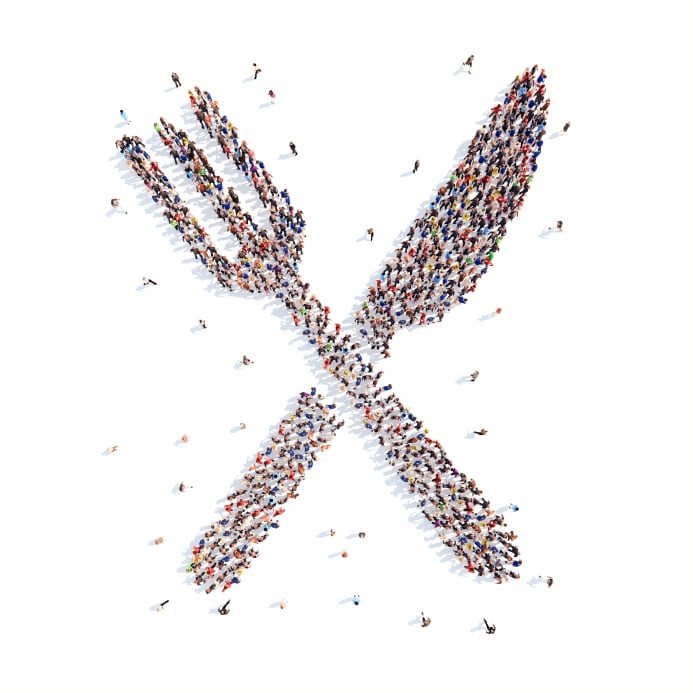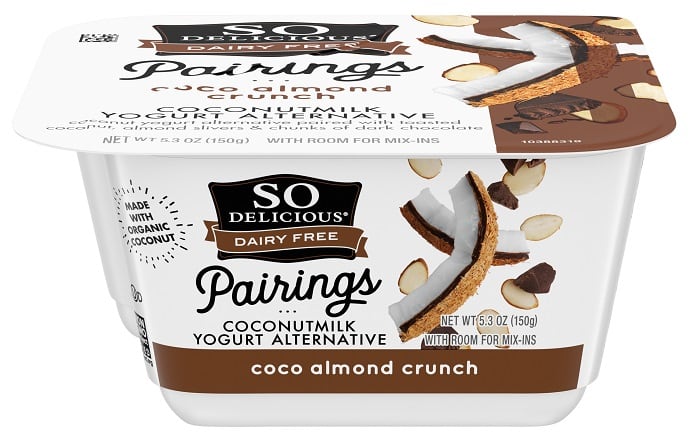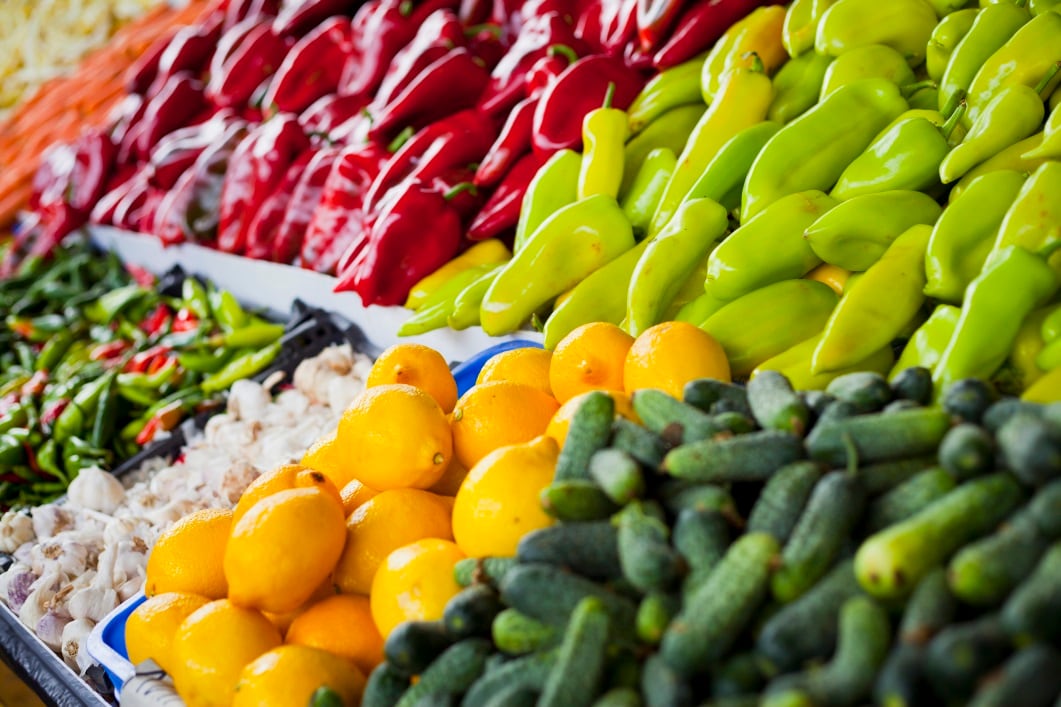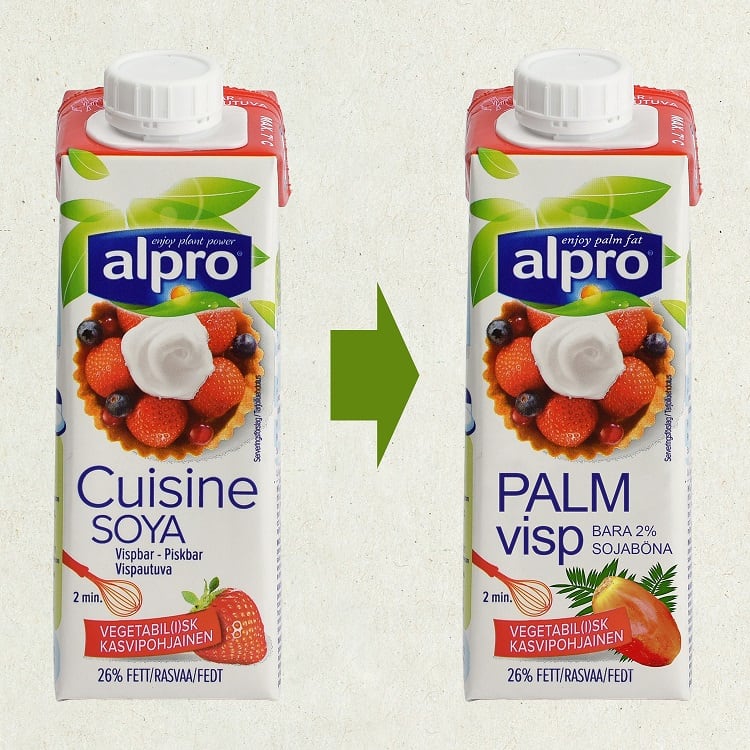The AI Factory for AgriFood is the third class of the Microsoft AI factory, which aims to support start-ups specialising in artificial intelligence. The programme is organised around five major economic and societal challenges: health, environment & energy, transportation, financial services and agrifood.
The AI Factory for Agrifood aims to accelerate the digital transformation of the food sector by helping start-ups to continue their development in artificial intelligence and cloud computing. Specifically, Danone and Microsoft said they hope to encourage projects serving regenerative agriculture (soil health, animal welfare, support for farmers), sustainable food, waste minimisation and optimisation of supply chains.
The accelerator will take a ‘full ecosystem’ approach, reflecting Danone’s ‘One Planet, One Health’ vision, which links human and planetary health across the venue chain.
A spokesperson for Danone told FoodNavigator that start-ups enrolled in the accelerator will work on ‘real use cases’ under real conditions, as opposed to lab or theoretical conditions. This will enable them to provide proof of concept.
Microsoft will provide personalized support through its technological skills and the services of its Azure platform, as well as its sales network. Inria, the national research institute in digital sciences, France Digitale, FaberNovel, EIT Food and Seventure Partners are also teaming up alongside Microsoft and Danone and will intervene during the different stages of the programme.
“Our ambition is to help develop digital intelligence for healthy food and sustainable agriculture. This partnership with Danone will provide the selected applicants with in-depth expertise and personalised support, thus accelerating innovation throughout the agrifood sector,” Agnès Van de Walle, director of the One Commercial Partner Entity at Microsoft France, said.
Data and the ‘food revolution’
Danone said that the move is representative of its approach to open innovation, which focuses on fostering collaborations with start-ups with a particular focus on data.
“At Danone, we believe that artificial intelligence can contribute to the food revolution by improving our agricultural systems and our food value chains,” Cécile Cabanis, finance and IT chief, noted. “It is essential to encourage collaborative initiatives, knowledge sharing and the emergence of new, more inclusive and more sustainable solution.”
Danone currently leverages data analytics to build a ‘Demand Driven End-to-End Planning System’ covering both operational and strategic horizons, from suppliers to consumers. The French dairy giant believes data can be used to promote traceability, transparency, sustainability and efficiency.
At a factory level, the company's spokesperson suggested Danone leverages new technologies like robotics and data analytics to enable innovation while stepping-up performance by improving value drivers such as efficiency, agility, speed to market and customization. Meanwhile, Data Driven Planning is used to ‘significantly improve on-shelf availability’ by developing a co-planning approach with customers, reducing the company’s stock position and waste in the value chain. “We are also developing blockchain to ensure end to end traceability on organic, and non-deforested soy, provided to feed our cows.”
In this way, Danone believes data can be used to transform the food chain. The spokesperson elaborated: “We have been limited in the past by our ability to collect data to evaluate where we are and track progress. Being able to measure relevant KPIs, we can start making sense of this complex object that is our food system: food habits down to the individual consumption; agricultural and water resource systems that underpin them. Not only can we [gain] valuable insights, but we also can start to influence positive behaviors through data and analytics.
“The success of the Food Revolution, and the agricultural revolution that will sustain it, will depend on our ability to put data in common [platforms], provide transparency in the food chain and ensure diversity in species and supply.”
‘Openness leads to great innovations’
The need to share data with various stakeholders has prompted Danone to enter data partnerships. For example, at the consumer level, Danone is working with the Food and Agriculture Organization of the United Nations (FAO) to make nutritional data available to the FAO and governments.
The agreement, launched in October last year, aims to improve global nutrition and food safety knowledge, while promoting responsible agricultural value chains. Under the Memorandum of Understanding, the FAO and Danone agreed to share data on emerging food safety issues; food consumption and nutrient intakes; and food systems and nutrition security.
Danone believes that opening up information will help deliver system-wide progress.
“At Danone, we strongly believe in the power of the collective and that openness leads to great innovations. That’s why one of the objectives we have set for our 2030 Goals is to serve the food revolution with partners.”
For example, when Danone celebrated its 100th anniversary last year the company decided to open access to its collection of 1,800 strains to researchers around the world.
“It furthers Danone’s commitment to promoting open science, a movement toward openness in scientific research, sharing and development of knowledge through collaborative networks. We believe that artificial intelligence as a key part to play in the food revolution by improving our agricultural systems and our food’s value chains. That’s why we are convinced it is essential to encourage collaborative initiatives, knowledge sharing and the emergence of new, more inclusive and more sustainable solutions.”
Danone wants to bring its know-how to collaborative projects with start-ups to challenge established processes and systems. “Working with start-ups is a rich source of innovation; we must encourage the emergence of these companies and draw on their dynamism and their fresh perspective on our businesses.”
Danone co-innovates with start-ups in two ways – through direct collaboration on dedicated projects and via its incubation entity, Danone Manifesto Ventures.
The company's project-based approach can be seen in partnership it operates with Connecterra, a Dutch start-up developing an artificial intelligence for dairy farmers. This agtech company from the Netherlands has developed IDA, the Intelligent Dairy Assistant, a connected device that monitors cow behaviour and translates this into actionable insights for the farmer. By using IDA, farmers can increase efficiency with 20-30% and increase animal health and welfare. Connecterra is also part of Danone's 3-year project Farming for Generations, launched in 2019.
Meanwhile, Danone launched its venture capital arm, Danone Manifesto Ventures, at the end of 2016. Financed by Danone, the VC invests in early-stage companies with the express aim of helping ‘young companies grow faster’ while maintaining their independence and allowing Danone employees access to ‘inspiration’.
“In doing so, the cross-fertilization potential is unlocked, enabling Danone to also learn from its partners. DMV is really accelerating a new form of innovation and making sure that everyone learns and changes when they come into contact with new projects.”




